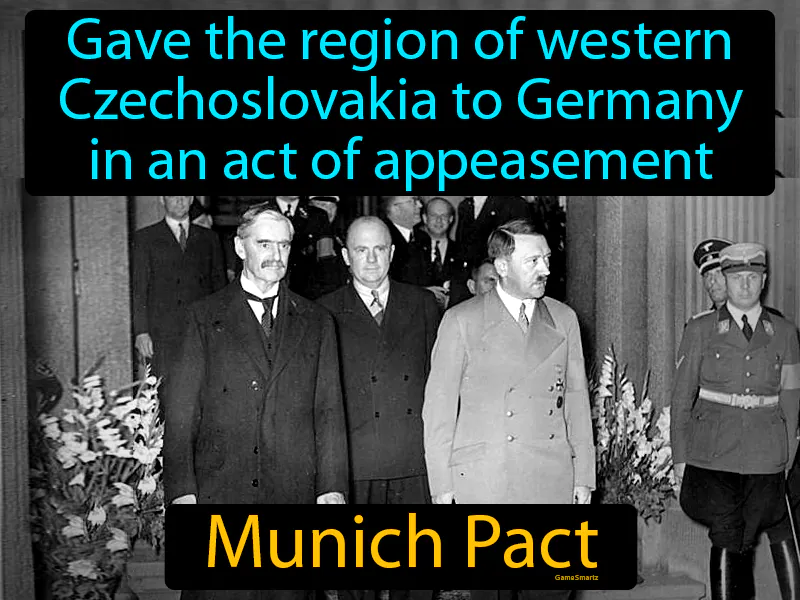Munich Pact
Munich Pact: Easy to understand
The Munich Pact, signed in 1938, was an agreement that allowed Nazi Germany to annex the Sudetenland, a region of western Czechoslovakia, in an attempt to avoid a larger conflict. This act of appeasement is important because it showed the dangers of giving in to aggressive demands, which only encouraged further aggression from Adolf Hitler, eventually leading to World War II. The pact is a historical lesson about the risks of trying to maintain peace at any cost, highlighting the importance of standing up to bullies and protecting international agreements. Today, this idea is relevant in global politics, as countries strive to prevent conflicts by balancing diplomacy with firm responses to aggression. In everyday life, it teaches us the importance of setting boundaries and standing up for what is right, whether in school, work, or community settings.

Practice Version

Munich Pact: Gave the region of western Czechoslovakia to Germany in an act of appeasement. Munich Pact. The Munich Pact was an agreement in 1938 where Britain and France allowed Nazi Germany to annex parts of Czechoslovakia to avoid conflict.